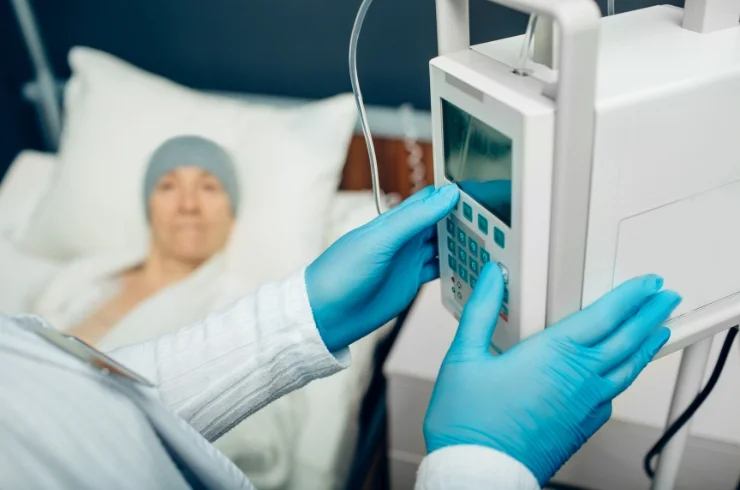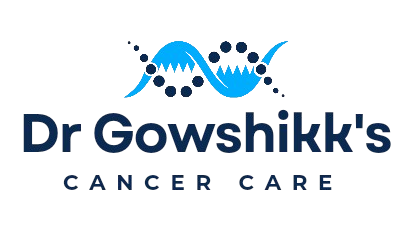Preventive and Geriatric Oncology

Preventive and Geriatric Oncology are two critical aspects of modern cancer care, focusing on reducing the incidence of cancer and improving the quality of life for elderly cancer patients.
Preventive Oncology:
Preventive oncology involves measures aimed at reducing the risk of cancer development or detecting it at an early, more treatable stage. It emphasizes proactive strategies in both healthy individuals and those at higher risk due to genetic factors, lifestyle choices, or family history.
- Cancer Prevention:
- Lifestyle Modifications: Smoking cessation, healthy diet, regular physical activity, and limiting alcohol consumption are fundamental in reducing the risk of many cancers, including lung, colon, and breast cancer.
- Vaccination: Vaccines, such as the HPV vaccine, help prevent cancers caused by viral infections. For example, the HPV vaccine reduces the risk of cervical, anal, and throat cancers. The Hepatitis B vaccine reduces the risk of liver cancer.
- Chemoprevention: Certain medications, like tamoxifen for breast cancer or aspirin for colon cancer, are used to reduce the risk of cancer in high-risk individuals by interfering with the biological processes that lead to cancer development.
- Early Detection:
- Screening Programs: Regular cancer screening (e.g., mammograms for breast cancer, colonoscopies for colorectal cancer, Pap smears for cervical cancer) is essential for early detection, especially in individuals at higher risk due to family history or environmental factors. Early detection significantly improves the chances of successful treatment.
- Genetic Testing: Identifying genetic mutations (such as BRCA1/2 in breast cancer or Lynch syndrome in colorectal cancer) can help determine if an individual is at higher risk and guide preventive measures or early surveillance strategies.
Geriatric Oncology:
As the global population ages, the field of geriatric oncology has become increasingly important, focusing on the unique needs and challenges of older adults with cancer. Older adults often face complex issues such as comorbidities, frailty, and decreased physiological reserve, which can complicate cancer diagnosis, treatment, and outcomes.
Comprehensive Geriatric Assessment (CGA):
- Physical Functioning: Older adults may have limitations due to existing health conditions. A CGA evaluates their physical function to ensure cancer treatments are feasible and appropriate.
- Cognitive and Psychological Health: Many older patients experience cognitive decline or depression, which can impact their ability to tolerate treatment or manage their cancer. Addressing these issues is key to improving overall care and quality of life.
- Social Support and Independence: Assessing the level of social support, independence, and the ability to care for oneself is critical for managing older patients with cancer. This helps in making informed decisions regarding treatment plans and care settings.
Treatment Considerations:
- Individualized Treatment Plans: Cancer treatment for older adults requires careful consideration of their unique medical needs. The type, stage, and aggressiveness of the cancer must be weighed against the patient’s overall health, life expectancy, and personal goals. Some older adults may benefit from less aggressive therapies or supportive care instead of standard treatments like chemotherapy or radiation.
- Polypharmacy: Older adults often take multiple medications for various chronic conditions. Managing drug interactions and side effects is essential to ensure the patient’s safety and the effectiveness of cancer treatments.
- Palliative and Supportive Care: For elderly patients, the focus may shift toward palliative care, which emphasizes symptom management, pain relief, and improving quality of life. This is particularly true in cases of advanced cancer or when aggressive treatment is not in line with the patient’s goals.
Challenges and Solutions:
Older adults with cancer face several challenges, including frailty, limited mobility, and the presence of other chronic conditions such as diabetes or cardiovascular disease. Addressing these challenges requires:
- A multidisciplinary approach, including oncologists, geriatricians, nutritionists, physiotherapists, and social workers.
- Personalized care that balances the need for effective cancer treatment with the goal of maintaining the patient’s independence and comfort.
- Support for caregivers, as older adults often rely on family members for assistance, making caregiver well-being a key component of geriatric oncology care.
Conclusion:
Preventive and geriatric oncology aim to reduce the incidence and impact of cancer across different populations. Preventive strategies focus on lowering cancer risks and improving early detection, while geriatric oncology addresses the unique challenges faced by older adults with cancer. Both areas are critical to the overall strategy of improving cancer care, ensuring that patients live healthier, longer, and more fulfilling lives.
